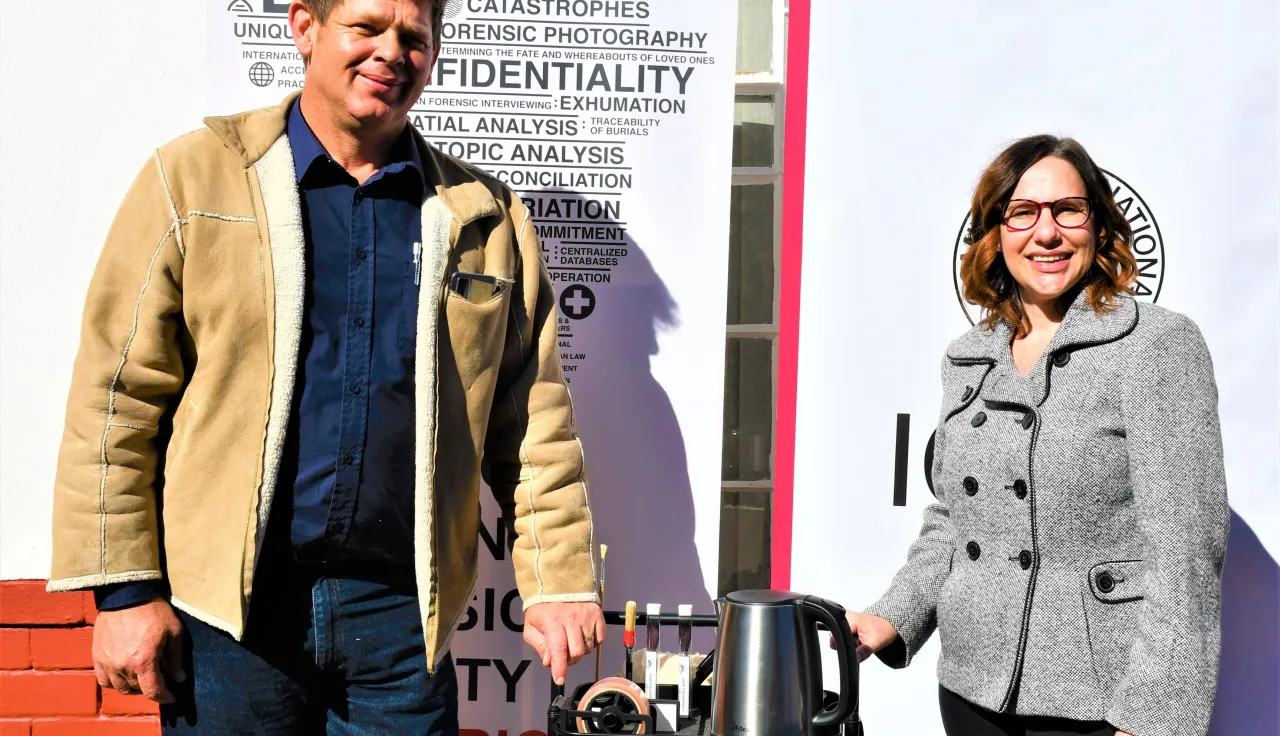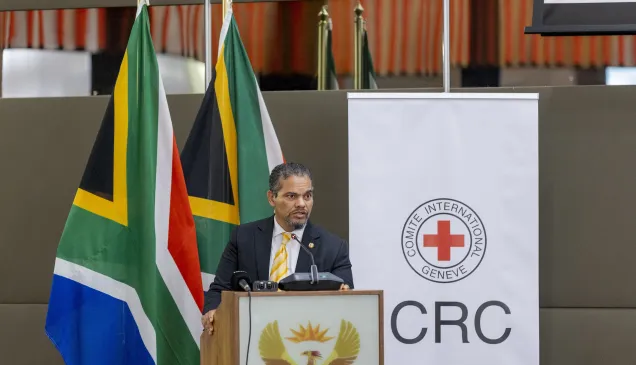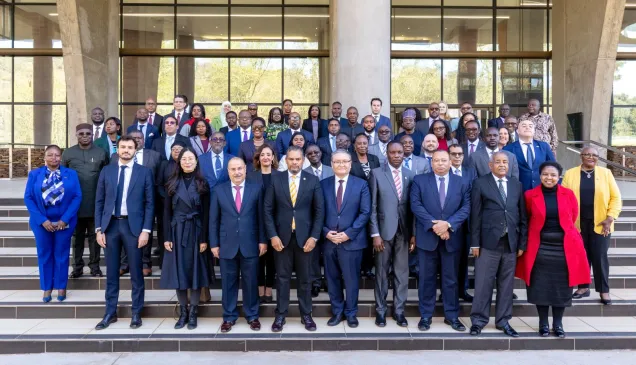Pretoria (ICRC) – To help reduce the number of unidentified deceased and provide closure to the families of missing persons, the International Committee of the Red Cross (ICRC) Regional Delegation in Pretoria has donated fingerprinting equipment to the Bronkhorstspruit Forensic Pathology Service.
"This will allow for the improved quality of fingerprints collected and submitted, which in turn will increase the likelihood of identification," said ICRC Forensic Specialist Lucinda Evert.
Annually, thousands of bodies remain unidentified in mortuary facilities across the country and are eventually buried as paupers, creating further strain on the available public services, including pathology services.
To address this and to provide answers to the families of missing persons, the ICRC collaborated with the authorities to enhance forensic identification procedures used in mortuaries throughout the country. This involves introducing secondary examinations exclusively for identification purposes, standardizing forms and processes and training of practitioners and forensic students.
Evert said the donation is part of the ICRC's "Missing and Deceased Migrants and their Families'' Programme (MDMP) and there are plans to expand to other mortuaries.
The programme seeks to assist families searching for missing migrant relatives, alive or dead.
These examinations together with the collection of descriptive data, fingerprints and DNA samples are submitted by the mortuaries to the authorities for search through various databases for identification, which can potentially lead to a reduction of the number of unknown bodies in their facilities.
For more information and interview requests please contact:
Khatija Nxedlana, ICRC Pretoria, tel: +27 78 737 2209, knxedlana@icrc.org
Thato Mahlangu, ICRC Pretoria, tel: +27 66 481 6823, tmahlangu@icrc.org




